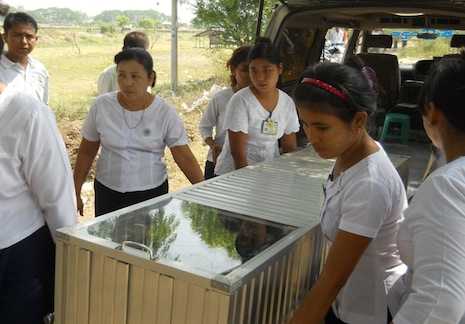
Given the considerable amount of good that social organizations do in Myanmar, it is perhaps surprising that they face such a hard time gaining acceptance. But then, in a country where government services are limited at best, groups which perform functions in place of the state are often considered a threat by it. The result is a patchwork of about 100 of these organizations including healthcare providers, funeral services and environmental awareness groups which tread a delicate line between state acceptance and illegality. “The more social associations pop up, the more people end up relying on them such as financial help at times of sickness or funeral services,” says Kyaw Yin Myint, a senior journalist at Modern Weekly Journal and a former volunteer at the Byamaso social service in Mandalay. The number of these organizations has increased, driven mainly by necessity, particularly in the wake of Cyclone Nargis which devastated the Irrawaddy Delta in May, 2008. “We feel inspired by people in our surrounding area who can’t afford to pay for medical examination fees and who are even unable to arrange funeral services as the cemetery is far away from town,” said Hla Aung, an administrator at the Chanmyae Thukha social welfare organization. Still, Kyaw Yin Myint says that “cooperation” between these organizations and society, including the government, is essential if they are to carry out their work more effectively. Things like management and accounting remain largely alien concepts to these grassroots organizations, many of which are little more than informal groups of a few friends providing community services in their spare time. Without the necessary support, many have started and immediately collapsed, says Kyaw Yin Myint, insisting that networking with seasoned professionals is vital to the survival of these organizations, where those people exist in Myanmar. The key question many social organizations are now asking themselves is: what effect will the new, quasi-civilian government have on these vital support groups? Nyein Chan, chairman of the Sane Yong So environmental focus group, said that the recent rise in the number of social organizations is due to the rapidly increasing openness of the new government after half a century of military rule. In his speech marking one year in office in March, Myanmar’s new reformist President Thein Sein explicitly acknowledged the role of civil society groups in building a new, democratic Myanmar. But the reality on the ground remains little different to that under military rule prior to the landmark November, 2010 elections, says Nyein Chan. These social organizations still face difficulties dealing with local authorities and registration. He says that grinding poverty has prompted those with more -- particularly young people and business people -- to get involved. If only the government would do so too, he adds.


